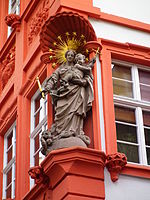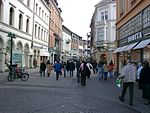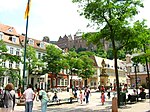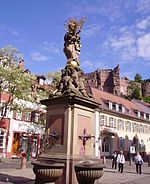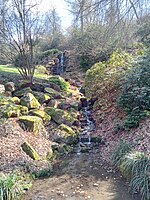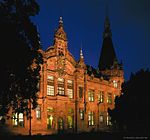President Friedrich Ebert Memorial
Biographical museums in GermanyBuildings and structures in HeidelbergHouses in GermanyMuseums established in 1960Museums in Baden-Württemberg ... and 1 more
Tourist attractions in Heidelberg

The President Friedrich Ebert Memorial (Reichspräsident-Friedrich-Ebert-Gedenkstätte) in Heidelberg commemorates the life and work of Friedrich Ebert, who was born in the house on 4 February 1871. From humble origins, he became a member of the Social Democratic Party of Germany and was finally elected as the first German democratic head of state in 1919. Faced with extreme internal and external pressures, he prepared the way for parliamentary democracy in Germany after the end of World War I. In these years he preserved national unity and made a vital contribution to the creation of a social and democratic republic.
Excerpt from the Wikipedia article President Friedrich Ebert Memorial (License: CC BY-SA 3.0, Authors, Images).President Friedrich Ebert Memorial
Pfaffengasse, Heidelberg Altstadt (Altstadt)
Geographical coordinates (GPS) Address Nearby Places Show on map
Geographical coordinates (GPS)
| Latitude | Longitude |
|---|---|
| N 49.412777777778 ° | E 8.7083333333333 ° |
Address
Pfaffengasse 12
69117 Heidelberg, Altstadt (Altstadt)
Baden-Württemberg, Germany
Open on Google Maps
